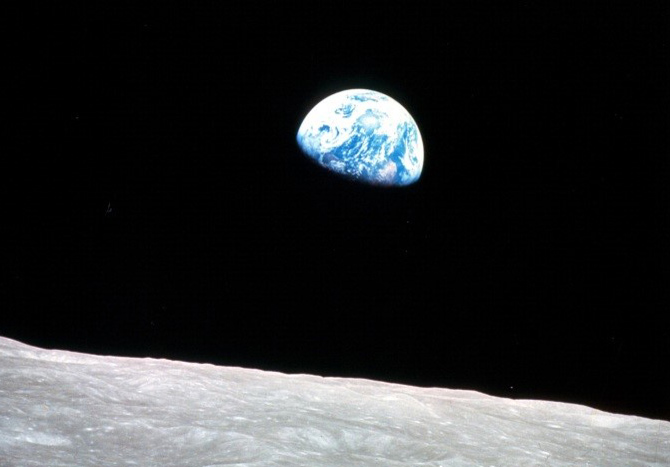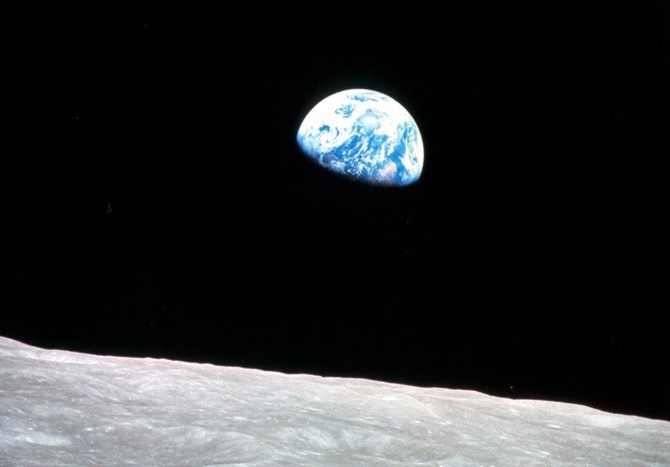Alexander M. Wegner is a German Ambassador, who until recently worked at Weber Shandwick. Building on experience in the private and public sectors, he will be joining the University of Chicago as a graduate student this fall, concentrating in Science and Technology Studies, and the History of Political Thought.
“Maybe it’s a long shot, but the discovery of extraterrestrial intelligence might play a role in unifying our squabbling and divided planet.” Carl Sagan, Pale Blue Dot (1994)
Britain shocked analysts and the general public alike when close to 52 percent of voters decided to leave the European Union (EU) on June 23. Apart from its importance as a common market, the EU still serves to safeguard peace across the continent and prevent the very divides that had driven much of the Western world into the devastating wars of the early 20th century.
While observers point to the adverse effects this referendum is already having on the pound, with recession being a serious threat, the real danger goes far beyond business and economics. As The Economist notes, Brexit deepens the woes that have engulfed Europe in recent months with member states discontent, the refugee crisis far from resolved, and populism on the rise.
With the US presidential election scheduled for November this year and also dominated by the same kind of shallow rhetoric that led Britons to drastically alter the course of European history, one cannot help but be reminded of the years that led up to the darkest chapter in German memory . In the grip of an apocalyptic ideology, which Graeme Wood outlined in The Atlantic, ISIS feeds off growing fear among citizens, fear that fueled the worldwide upheaval of the 1960s.
Amid a time when our politics appear increasingly incapable of addressing the abundance of challenges that beset our world, including ever-increasing inequity, a rapidly changing climate, and poorly-regulated advances in science and technology, a way forward will likely emerge from unusual sources. Relief from our troubles may not be found here on Earth, but in outer space.
When US President John F. Kennedy launched the Apollo programme in 1961, the world had many more urgent problems to solve rather than send humans to the Moon. The war in Vietnam was raging on, not even two decades after millions had lost their lives in the fight against fascism; tensions with the Soviet Union were at an all-time high; the civil rights struggle flared in the US.
Despite the wavering turbulence of 1968, or perhaps precisely because of it, three men, William Anders, Frank Borman, and James Lovell, embarked to the Moon, determined to reach our celestial neighbor ahead of the Soviets who had a much stronger space programme. Against the odds, with more than 230,000 miles behind them (the equivalent of just under 100 times the distance between New York and Los Angeles), traveled in about three days, the astronauts orbited the Moon ten times, broadcasting to Americans and the wider world on Christmas Eve.
To portray the significance of their address, a reading from The Book of Genesis may be best understood against the backdrop of the remarkable photograph the Apollo 8 crew took. Instead of turning to the Moon, having risked their lives in the pioneering attempt to reach it, the three men directed the lens of their camera to Earth. In the daunting darkness of the vast cosmic dry land that surrounds us, the iridescent blue and white of our home alludes to the preciousness of life.

© NASA – “Earthrise”
William Anders:
We are approaching lunar sunrise, and for all the people back on Earth, the crew of Apollo 8 has a message we would like to send you.
In the beginning God created the heaven and the earth. And the earth was without form, and void; and darkness was upon the face of the deep. And the Spirit of God moved upon the face of the waters. And God said, Let there be light; and there was light. And God saw the light, that it was good; and God divided the light from the darkness (Genesis 1:1-4 KJV).
James Lovell:
And God called the light Day, and the darkness he called Night. And the evening and the morning were the first day. And God said, Let there be a firmament in the midst of the waters, and let it divide the waters from the waters. And God made the firmament, and divided the waters which were under the firmament from the waters which were above the firmament; and it was so. And God called the firmament Heaven. And the evening and the morning were the second day (Genesis 1:5-8 KJV).
Frank Borman:
And God said, Let the waters under the heavens be gathered together unto one place, and let the dry land appear: and it was so. And God called the dry land Earth; and the gathering together of the waters called the Seas; and God saw that it was good (Genesis 1:9-10 KJV).
And from the crew of Apollo 8, we close with good night, good luck, a Merry Christmas, and God bless all of you–all of you on the good Earth.
This message from the crew of Apollo 8, sent off farther from Earth than any human had ever been before, may have made for the quietest moment of the 1960s, if not of the 20th century. The image of Earth, a refugee in a forbidding vacuum, still is a reminder of the truly miraculous nature of life, and the dependence of our common fate on this Pale Blue Dot–the title of a 1990 image of Earth taken at a distance of 4 billion miles by Voyager I, and of a book by Carl Sagan.

© NASA – “Pale Blue Dot”
Though to be taken seriously, developments such as Brexit, the so-called refugee crisis, the expansion of the Islamic State on the backs of disenfranchised youth with and without a history of migration, and the disintegration of much of the Middle East are no more remarkable than Earth, as seen in the image above. The true significance of these occurrences and their counterparts in past and future lies in the moral bedrock of civilization of which they remind us.
In our age of Silicon Valley, an engineering culture has taken hold based on the assumption that most, if not all, problems have technical solutions, requiring intelligence alone. It is this culture, more aptly referred to as ideology, which Marx took to mean false consciousness, that leaves us lost in the turmoil of international affairs. We end up scratching the surface of pressing issues rather striving to answer the difficult questions that have been with us for millennia. In his Genealogy of Morals, Nietzsche fittingly states: “something [...] has been unlearned most thoroughly nowadays [...] for which one has almost to be a cow and in any case not a ‘modern man’: rumination.” Absent of tackling tough questions, history will prove cyclical.
Epics of old, which we have merely come to encounter in the names of brands and products (Amazon, Mars and Nike to name but a few), once served to prompt deliberation and to preserve a set of lasting values. Due to the changes societies have undergone over time, with the close-knit communities of aristocracy giving way to the individualism of democracy, these epics cannot regain their societal centrality, and must be replaced with equally potent artifacts.
Though mistaken in their assumptions about the nature of our problems, the engineers of the San Francisco Bay Area could be the ones to come to our rescue. Arguably, the appeal of science and technology is rooted in the daring and bold character of its inventors, which stands in contrast to the routines of modern-day bureaucracies and very complex global commerce. Rather than looking toward Artificial Intelligence (AI), which could displace millions of blue and white collar workers this century, worsening our troubles, and the highly uncertain advances in biotechnology (including CRISPR-Cas9), we should turn to the pioneers headed for outer space.
The efforts of Elon Musk and Jeff Bezos, the entrepreneurs steering SpaceX and Blue Origin, respectively, have already brought down the cost of spaceflight significantly. In fact, the private sector has long become the engine of space exploration, with numerous companies having set up base in the Mojave Desert, lured by what has been estimated to be a trillion-dollar industry. Meanwhile, the National Aeronautics and Space Administration (NASA) and the European Space Agency (ESA) are deploying the latest instruments (most promisingly, the James Webb Space Telescope, going live in 2018) to explore the solar system and what stretches out far beyond it.
The photographs of Pluto, taken by New Horizons just last year, captivated millions around the globe, as did the extraordinary measurements of gravitational waves predicated by Einstein. At around 2030, probes are scheduled to assess the subterranean ocean of Europa, a moon of Jupiter, thought to have three times the volume of our own ocean at ten times its depth, and the lakes of liquid methane on Titan, a moon of Saturn; the latter mission could be even more significant than the Moon landing, subject to its findings about the viability of life beyond Earth.
Of course, perhaps the most anticipated journey into outer space is the manned mission to Mars, which could unfold before the mid-century, intended to help humanity prolong its existence. Given the difficulty of traversing the distances between planets and stars, to not even mention galaxies and other universes, should we live in a multiverse, forming galactic outposts is crucial. The state of turmoil in which we find ourselves at present finally puts to rest the notion that we are at the End of History, as a period of permanent stability and stasis at the peak of human achievement, and reminds us that our civilization is a fragile one, and our prospects uncertain.
In the context of that realisation, we must focus on outer space, not only in the hope of being pulled outside ourselves, a goal the Apollo programme accomplished, but to construct the pillars of a human future in the cosmos. Opponents of capitalism seem to hold a view of the human species as a parasite, in light of the extensive costs at which our pursuit of profit has come. Yet if this analogy were true, we would be a miserly one, befalling a single host, Earth, instead of many. In that sense, we should be encouraged by such criticism, first, populating the solar system within this century, and, second, entering interstellar space during this third millennium.
Preparing the next generation of scientists, inventors and explorers, for them to follow in the footsteps of those who drove the Age of Discovery from the 15th to the 18th century, requires renewed investment in Science, Technology, Engineering and Mathematics (STEM) subjects. Equipped with a growing number of devices for Augmented Reality (AR) as well as Virtual Reality (VR), and as online education will reach many more people across the planet, we have an opportunity to draw our children to the worlds that beckon all along the rising frontier of space. With the aid of Machine Reading, whose shortcomings are likely to be resolved in the near future, even highly complex and interdisciplinary challenges of the kind involved in spaceflight could become increasingly manageable, gradually accelerating progress to undreamt of speeds.
Without doubt, venturing into outer space will not provide us with a simple and lasting fix. Nonetheless, the likelihood that humanity will succeed in solving its ever more intricate problems on this planet is negligible, regardless of the optimism Silicon Valley forever exudes. Long after the Apollo programme ended, the struggle for civil rights waged on; the violence and tensions witnessed in Vietnam and throughout the Cold War persist under different names. For better or for worse, there is no escape from history, only a long and arduous march through it.
Whether, in a billion years from now, the Golden Record, a perhaps undecipherable message from Earth on board Voyager I and II, carried through the darkness of interstellar space, will resemble the ruins of ancient civilizations, or whether it will float through a universe teaming with our distant, perhaps unrecognizable descendants, depends on our conduct today. It is in recalling the past and retrieving the enduring questions that sparked the great books that we can best grapple with issues requiring our immediate attention. As Europe trembles under the impact of Brexit, we must not fall for demagogues and xenophobes, but rather look to the stars.


